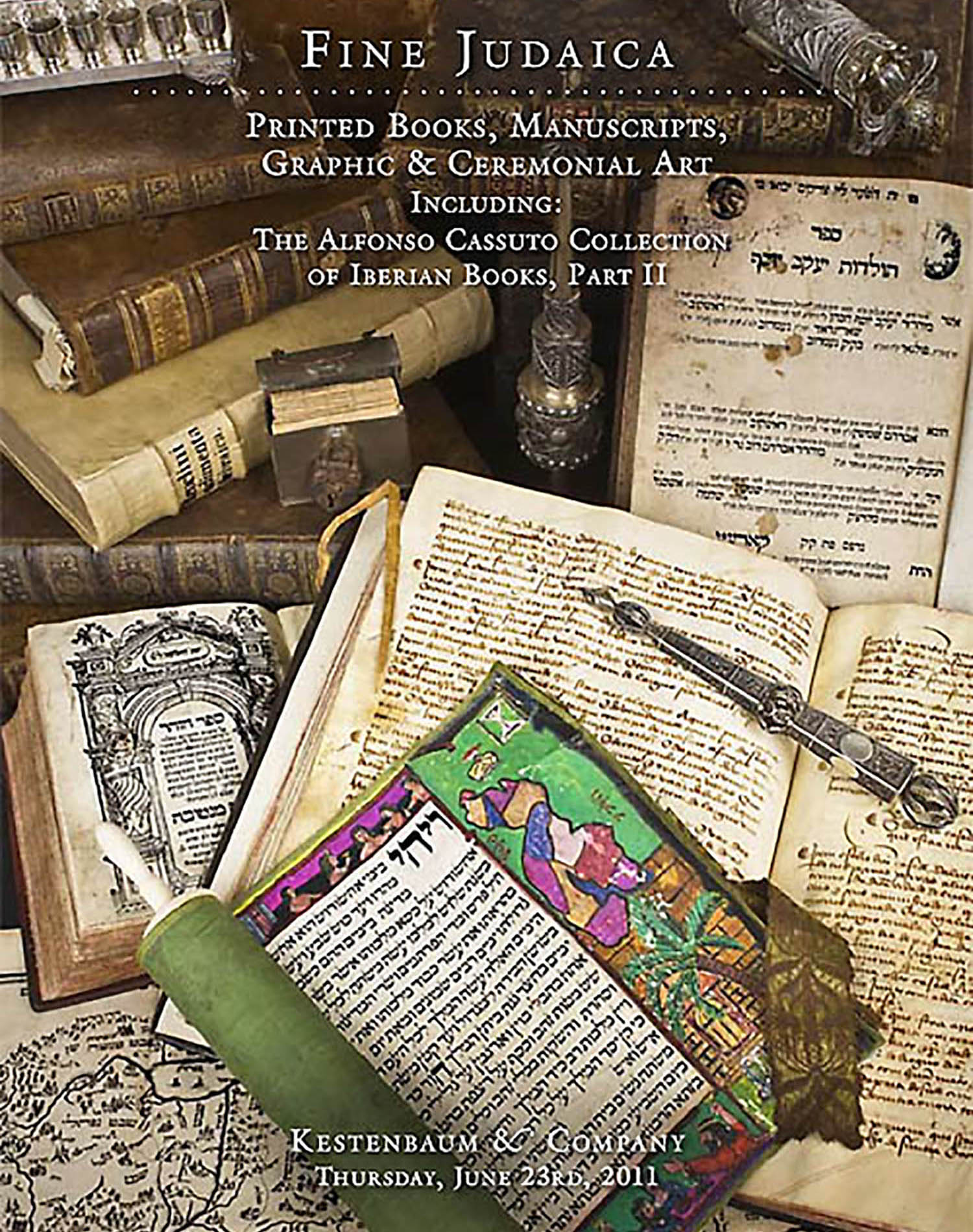(NATHAN OF GAZA). Tikun Keri'ah Lechol Yom [order of penitential prayers and devotions]

AUCTION 51 |
Thursday, June 23rd,
2011 at 1:00
Fine Judaica: Printed Books, Manuscripts Graphic & Ceremonial Art Including: The Alfonso Cassuto Collection of Iberian Books, Part II
Lot 271
(SABBATIANA)
(NATHAN OF GAZA). Tikun Keri'ah Lechol Yom [order of penitential prayers and devotions]
(Frankfurt a/Main): 1666
Est: $5,000 - $7,000
PRICE REALIZED $6,500
This small compendium with devotions for both night and day, belongs to a unique genre of literature produced by the messianic movement surrounding the person of Shabthai Tzvi (1626-76) the pseudo-Messiah of Smyrna. The year 1666 was the height of fervor at which time Shabthai's "prophet," Nathan of Gaza (1643/4-80) was sending epistle after epistle to devotees in Europe advising them which Psalms and other recitations could hasten the Messiah's imminent arrival. In the bibliography to his biography, Gershom Scholem, carefully recorded these editions. He notes: "The penitential revival received a powerful stimulus from Nathan's liturgical handbook(s)...From January to the end of the summer of 1666, the printing presses poured forth a large number of constantly revised editions of these devotional and penitential liturgies" (p. 524).
What is especially fascinating about this particular Tikun, is that it contains updates based on the most recent communications from Nathan of Gaza. Thus, on f. 60r we read: "After the Tikun of the night, one should say this Psalm. It had been left out, since it was not known of until now, but based on a new letter [i.e. of Nathan of Gaza], recently arrived." There follows Psalm 26. It appears that the directions received from Nathan were sometimes contradictory, resulting in confusion. Thus on f.5v, the printer notes: "From another epistle it seems that Psalm 26 was substituted for Psalm 9; therefore I have written both and the reader will choose and receive his just reward." Similar such instruction are found throughout the volume
